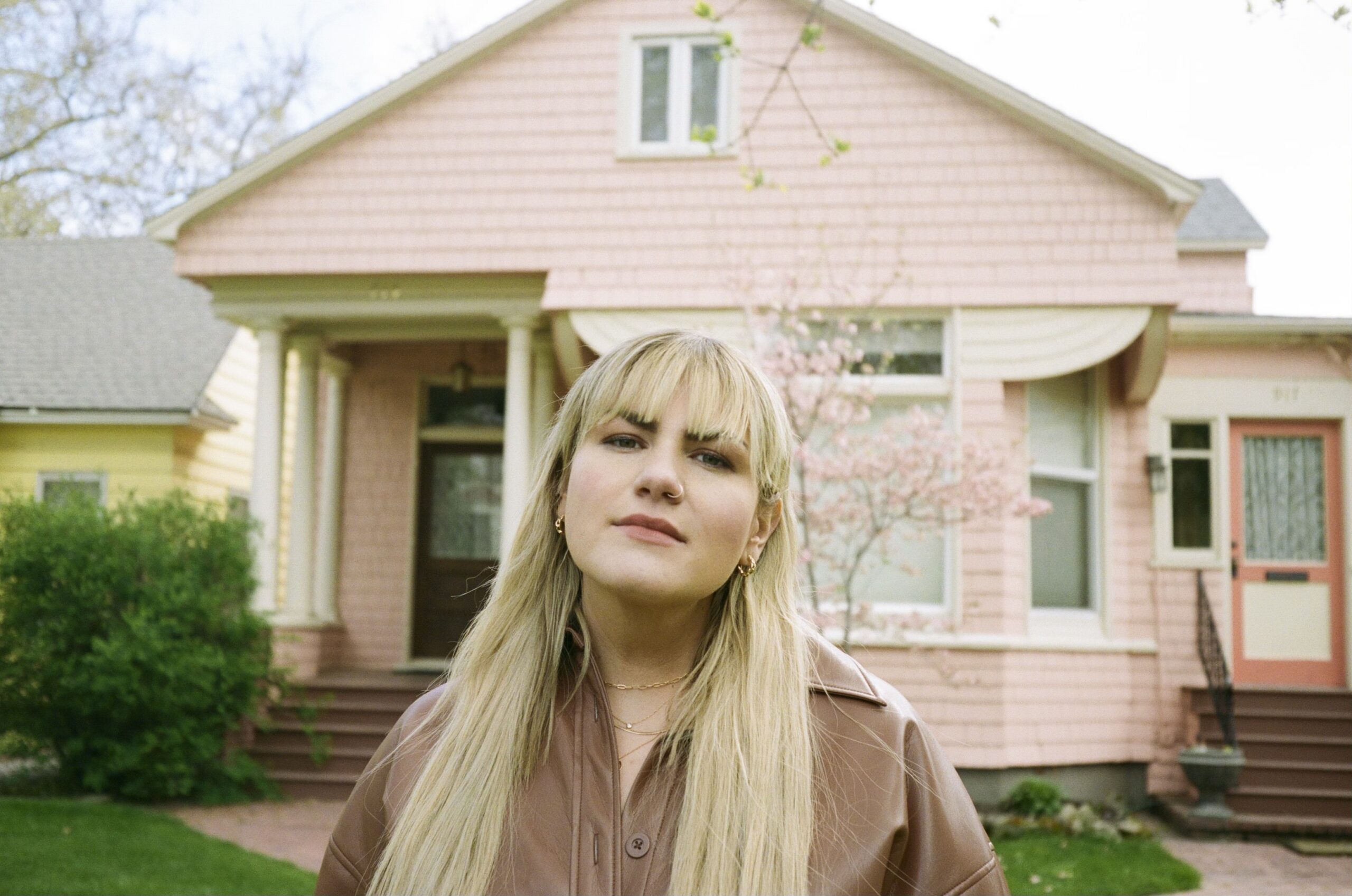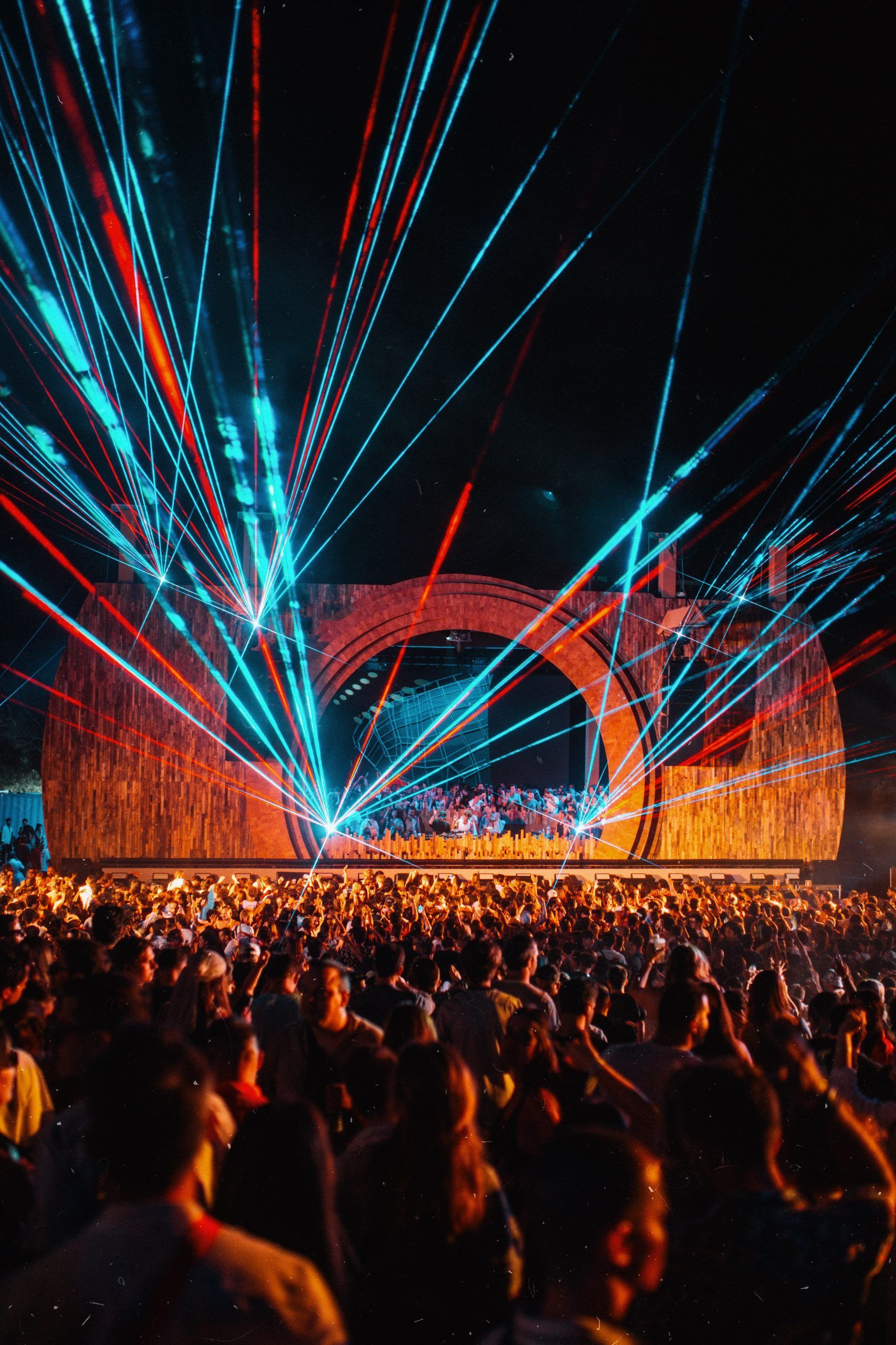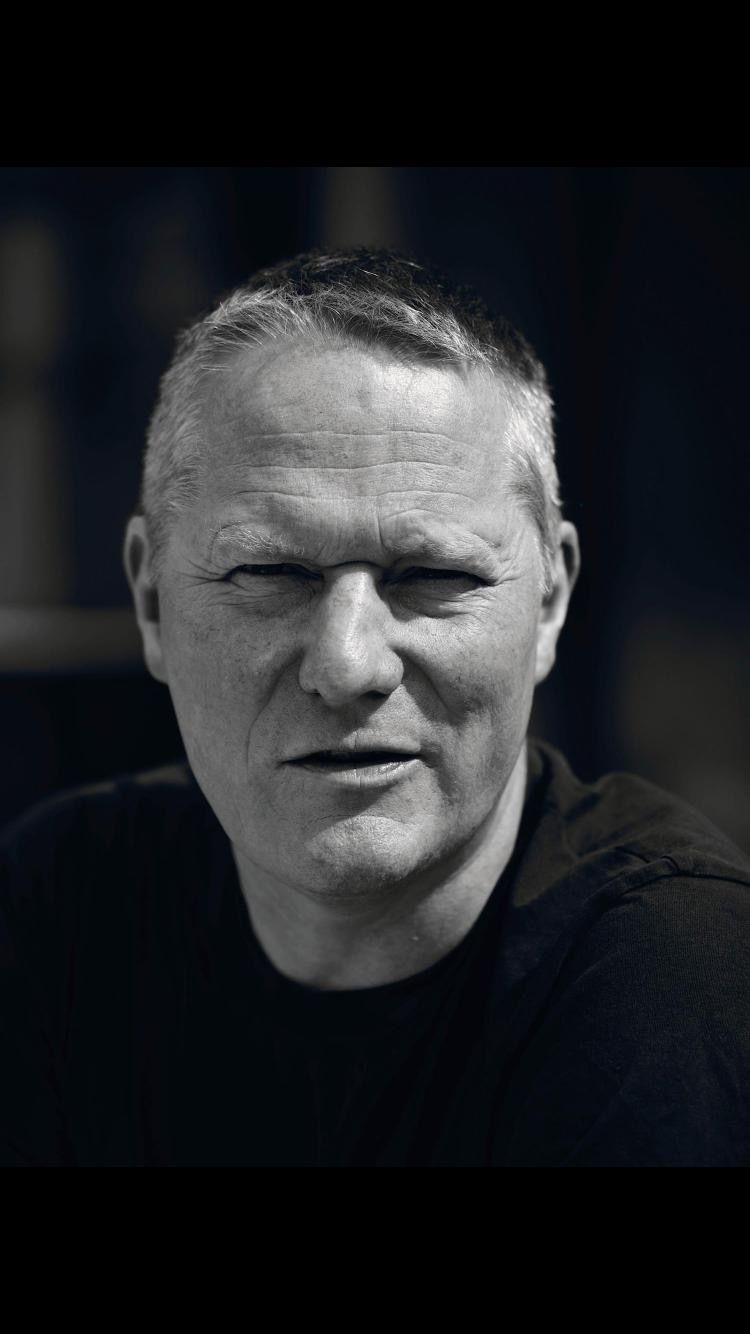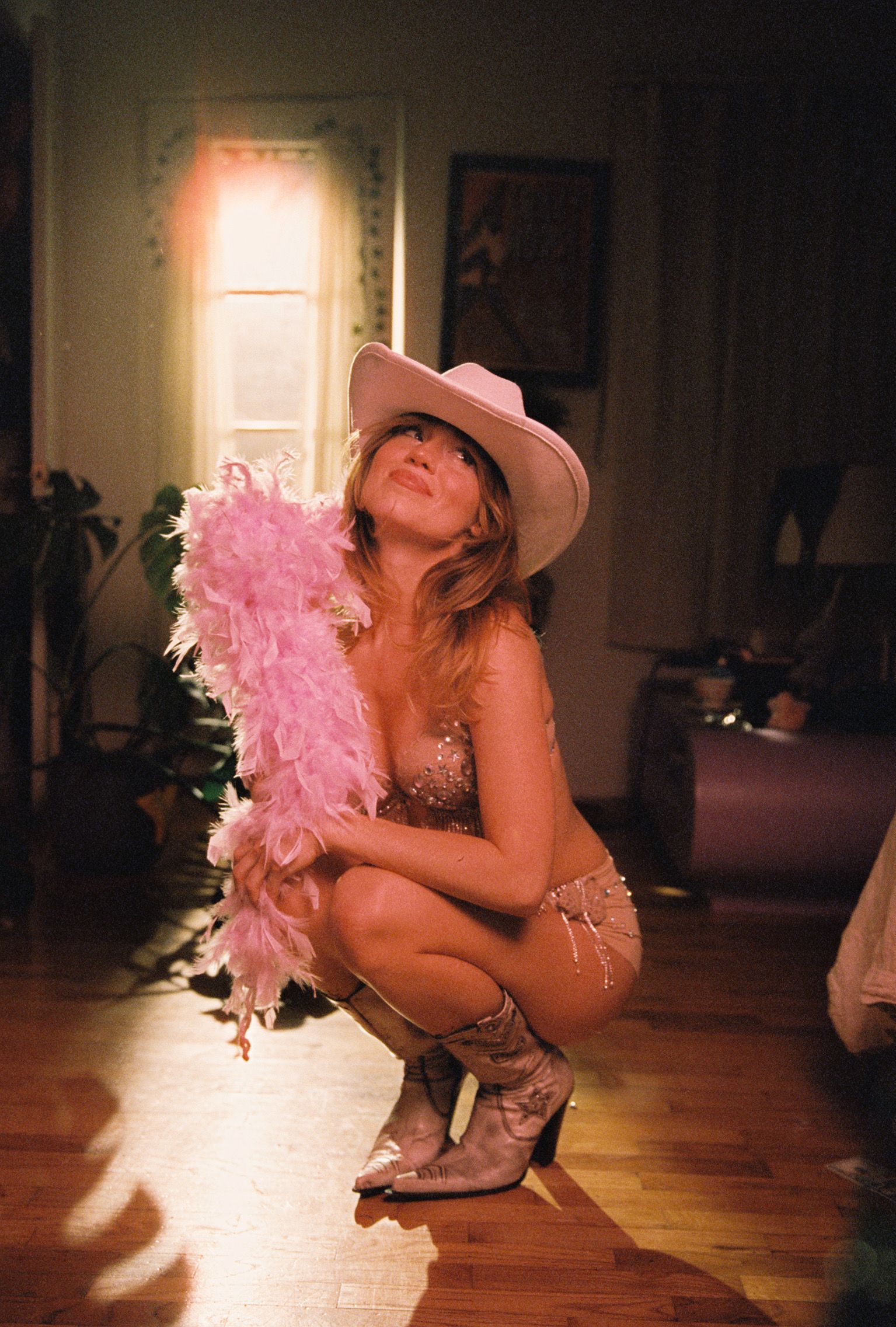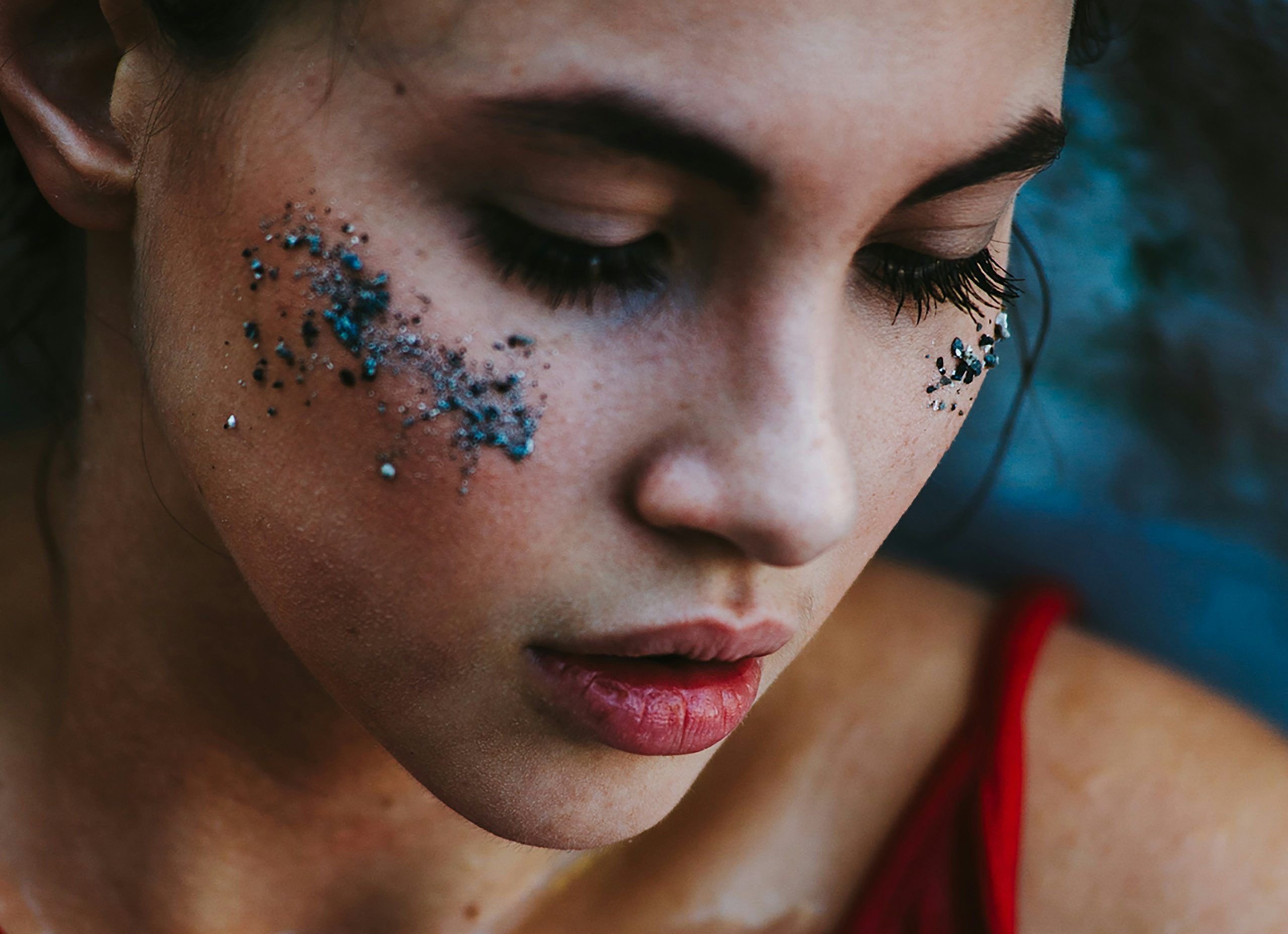Viral singer/songwriter Maddie Zahm’s new EP is a masterclass in authenticity and saying things with your chest.
Growing up in Idaho, Maddie Zahm thought she would find her place in the world among music. With a past leading worship at her church, a stint on American Idol and a brain that loved a clever turn of phrase, a career in country music seemed the natural fit. Yet, as it came to fruition, Maddie couldn’t help but feel like a piece of her was missing. After her publisher rejected her EP, the singer/ songwriter took a step back from music and turned inward, using her skills as a way to work through the various traumas accumulated by someone in their 20s, never intending for it to be heard. The result of the introspection, eventually became Maddie’s debut EP, You Might Not Like Her. The recent release of which has brought her both viral notoriety and healing.
In each of the five tracks, Maddie Zahm is open and honest about her feelings and identity. The songs, while catchy, are heavy and deal with body image, religious trauma and sexuality in a way that is both admirable and rare. It’s not surprising that the raw emotion she showcases has quickly endeared Maddie to fans around the world. Multiple songs on the EP, including the title track, have inspired TikTok trends, garnering Zahm 1 million followers on the platform. With the way she utilizes her vocals, listeners can tell the lyrics aren’t just words to the singer. She means what she is singing with her whole chest.
1883 Magazine’s Sydney Bolen sat down with Maddie Zahm to talk about her new EP, the type of artist she wants to be, the importance of saying things with her chest. and more.
Congratulations on You Might Not Like Her. It’s incredible. How are you feeling now that it is out in the world?
To be honest, I feel free. I think there was a lot of fear behind releasing it because it was so honest. It wasn’t something that I ever really wanted nor saw myself releasing. Even though You Might Not Like Her was a song and a single and part of my hardest project, it also was very much my life. Releasing this was more than just putting out music. It was also me coming out and acknowledging things about myself. Behind the scenes I was having conversations with my family and all that comes along with that. This release has almost felt like the end of a chapter rather than the beginning one. It was really crazy to have people be like, “congratulations on the start of your project” when I felt like I was closing a year of my life.
What made you decide to release these songs Instead of just keeping them to yourself?
You know, I’ve questioned that a lot recently. The answer that I used to give was that it felt full circle. It felt like it needed to be out there to help other people heal. If I had heard these songs, maybe I could have acknowledged things about myself sooner. But, I think the real answer is that I am bad at communicating outside of music. When I write songs, I’m so much more clear. I know that so much of this EP is my reality and the best way to be able to tell my hometown and my family is through song. I wanted to live in that truth because I felt like I was hiding so much. I was so afraid to release this but I felt like I couldn’t live in total freedom unless it was out because it would have still felt like I was hiding something. Does that make sense?
Yes, totally. Once the first song was out, was it easier?
No. [laughs] If It’s Not God was the hardest release. Which is funny because I feel like You Might Not Like Her was me coming out and acknowledging that everything that I had based my whole life around was not real. I thought that was going to be the scariest one. But then, If It’s Not God happened. Religious trauma is really interesting. You make jokes about it and you talk about it, but it’s almost like you don’t realize how much it affects you until it does. Once I posted If It’s Not God and I started experiencing that delayed reaction I shut down. I really did. That was a very scary release. Especially because it talks about my relationship with my mom. The lyric is “All the Sundays I worried I’d disappoint my mom.” My mom and I are so close. She really struggled with it too. She was always really accepting. She was the black sheep of the church as a parent. She was the parent that other kids my age could come to when they were going through things and she would love and accept them. The amount of times that my friends were doing things that they knew that their parents wouldn’t love them because of or would reject them because of my mom was always a safe person to rely on. So, it was just interesting to acknowledge that I was still worried about disappointing her.
My mom really did everything right when it came to creating a safe place for me to come out and it still was terrifying. It really gave me a lot of empathy for people in homes that are not accepting because I even struggled and I had a mom that loved me always. I still kept it to myself for so long. I think once my mom and I were able to come to the conclusion that it had nothing to do with the way that she loved me and everything to do with my perception of myself, If It’s Not God felt lighter. The religious stuff was secondary for me. The difficult part was talking about my relationship with my parents.
Did you even think about the possible public backlash due to the religious content and the world we live in today?
I was scared, but I meant every word of it. I really wanted this project not be about conclusions. If you listen to it, and listen to the heart behind it, I’m not saying “this is the truth. This is fact.” I don’t innately even say there’s not a god or there is a god in that song. I was raised in a church that traumatized, used or took advantage of a lot of people in my life. I think for a long time, maybe even since I was 15, I felt like something was wrong. I always was told in that church that the person that is asking you those questions was your flesh or conviction and to never listen to that voice.
What actually happened is that the church raised me to have a lot of conviction in what’s right and what’s wrong. I was taught what was right and what was wrong in their minds, but then I got older and realized that wasn’t true. The church basically reared a generation of kids that were taught how to speak up for something. They wanted that thing to be a powerful church. What happens when that voice flips? So, I was worried about the backlash, but I also was really ready to have these conversations. What people didn’t see when it came to If It’s Not God, was that I had coffee with almost every pastor from my church. I showed the song to people in my church.
Oh, that’s cool.
I want to have these conversations with people in the church. I want to have these hard conversations because for as messy and as harmful as the church was to me, it was a lot worse for a lot of my friends and a lot of the people in my life. I am willing to have those conversations because I know that not everybody is.
The conversations you were able to have, did you find they helped in your healing process?
Yeah. I have had some really good conversations with people from my old church that have been very healing for me. I’ve realized there are a lot more people that are going through this than other people care to admit. I know the responsibility that I hold with releasing an EP like this. There are times when I’m in public and somebody will look at me and they’ll be with the parents or something. I can tell from the way they are looking at me that they listen to my music, but they don’t say anything because of who they are with. It’s heavy to me. I get at least four or five messages a day from people sharing their stories and experiences with me. I don’t take it lightly.
You took on a lot of responsibility, not just in releasing an EP, but in the content that you decided to write about. I think it’s quite admirable.
I’m really not taking it lightly. It’s a different relationship with the people that are listening than I think some artists have.
I don’t want to forget that besides the content. The music itself is good! I don’t want that to go unmentioned.
[laughs] Thank you.
Personally, How has this release differed from the music you’ve released previously?
Oh my goodness. It’s completely different. I think about who I was when I was first writing music and writing a lot of songs about boys that I didn’t have feelings for. You can tell there’s a shift. This is a gateway EP for me. To be able to sing about the experiences that I’m having that I couldn’t before. I think back to being a country singer a year and a half ago and singing songs like Stupid Boys and how I always felt like I was faking it a little bit. Not in this coming-of-age, indie film way, but in a genuine way. I knew that I wasn’t being who I was supposed to be. I think my music reflected that.
Before all of this, I had sent my publisher a country EP and she basically told me, “this isn’t it.” I remember being so hurt by that. I quit all my projects and decided I just wanted to just write for other people. You Might Not Like Her was written in private just for myself. It was just different. I don’t even know how to describe it. I wasn’t writing to have a good concept. I wasn’t writing to be clever. I wasn’t writing for it to go viral. This was really just me speaking to myself. When I was writing these songs they were healing me. The stuff previously was just prohibiting me from being who I was supposed to be. Because I thought that I was just going to be a country- singing- straight-Idahoan in Nashville.
There is also a sound shift on this EP. Does it feel more like you as well?
Yeah. All of the sounds are very intentional on this EP. I wanted people to experience conviction outside of church. For a long time, the church has used music as a way to conform people into a lifestyle that hurts people and excludes people. Not all churches, I will say, but the one I was in did. I remember pastors being like, “when you sing, sing with your deep voice, because that’s what really gets people.” It was a lot of training to be intentionally convicting and on how to use my voice in that way. What’s funny is I didn’t find that voice until I left the church. I think they were looking for that power for a long time, but I got to use it myself. I’m thankful for the church in that way because I didn’t know it existed until they told me. But it’s not theirs. It’s mine. The sound was very intentional. I use a lot of my lower register and a lot of my “worship leading voice.” I don’t think all my stuff is going to be worship-esque like that, but, for this transitional phase, it needed to be. Does that make sense?
Yeah. It also makes even more sense how it feels like a closing of a chapter instead of the beginning of a new one. How has closing that door made you ready for whatever’s next?
When you listen to my music, I think there’s this assumption that I’m this extremely deep person all the time. Even though I do have a lot of introspection and I will cry at a table at La Brea Bakery [both chuckle], I also am very goofy and enjoy light-hearted things. I think this next phase will be fun, because while all this was happening, I also was experiencing life as a normal person would. I think this has been such a beautiful end to a chapter and now I get to share the normal shit that I’ve been going through, like getting my heart broken and having crushes. You know?
Totally.
I’m also juggling the fact that my career is doing what it’s doing. Plus, this is the first time that I’ve experienced living life as who I am as a human being. This is the first time I’ve had a queer friend group. It’s like experiencing college all over again in some ways because I never got to experience any of this. Now, I have this freedom and I’m figuring so much out. I think in the next phase of music I’ll get to share the other parts of my life that have been going on alongside all of this.
It should be fun because now people feel so connected to you from this one and they’ll want to go through that.
I hope. I want that. With the people that are following now, it’s not a normal relationship. I mentioned that to you. It really isn’t. It’s so much deeper than I like your music and vice versa.
I think that means they’ll continue to be there for you on a different level than “this is a fun song.”
I hope. I feel very lucky.
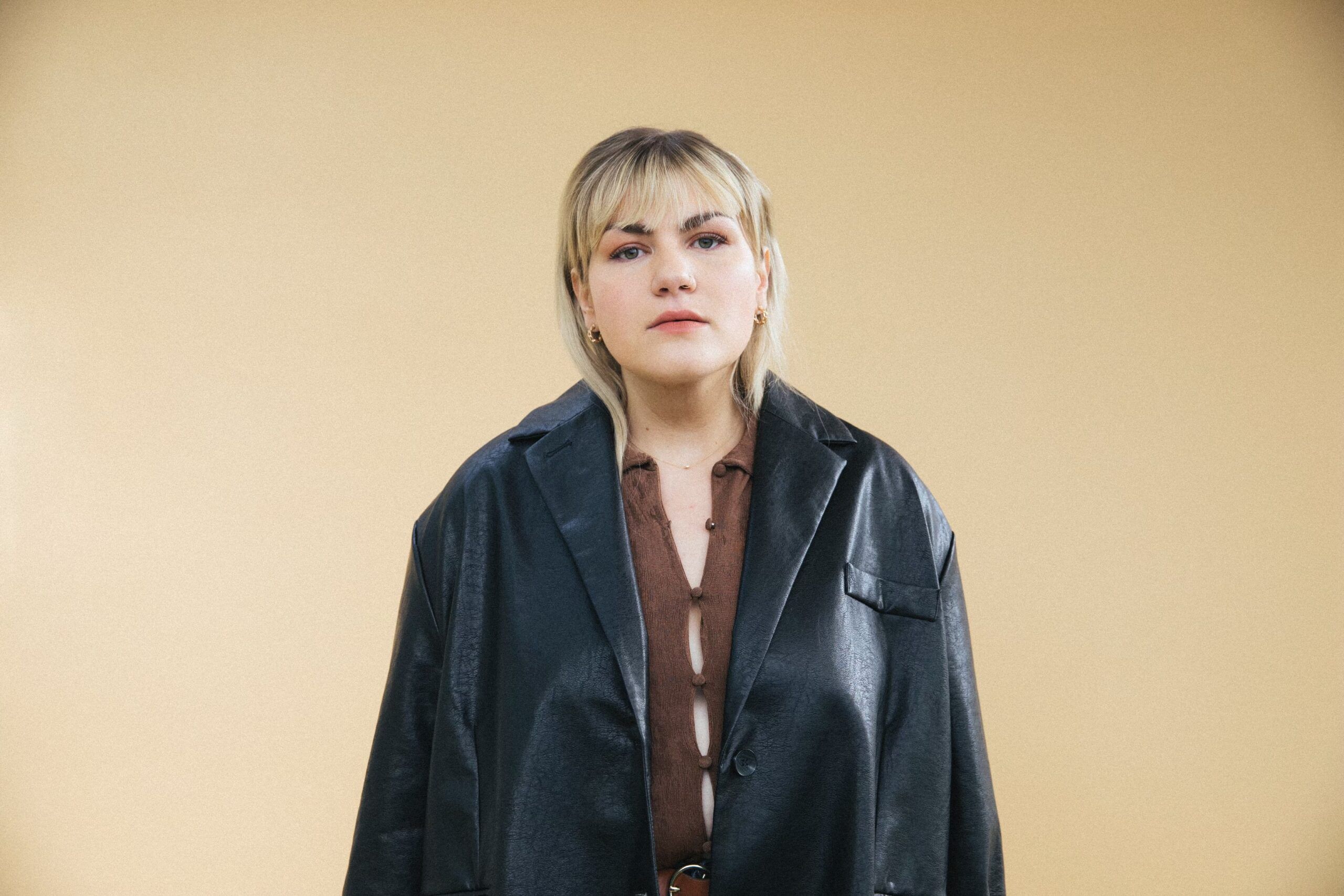
With how your music has blown up on TikTok, what has surprised you the most about that reaction because you said you didn’t write the music to be viral?
I genuinely kept thinking, “what the fuck?!” I posted Fat Funny Friend and the plus size community and the body positivity community just opened their arms.
Because there are not a lot of songs that are specifically for those communities.
There’s not. What’s wild is I had a couple people tell me I should take the fat funny friend line out of it.
Excuse me?
I know. This was before I found management. The person that was pushing to keep it was my publisher. But a lot of the people that I had shown in my life were like, “I relate to that, but I’m not plus size.”
So? You could still relate to it!
Right? I was like “that would be so untrue to the song.” I remember having that conversation with a friend and leaving and just being in just complete disarray because in my mind, I didn’t want to write something just to be relatable. I was writing because I was the fat funny friend. I still am and will forever internally be a fat funny friend. In terms of the reaction from the viral videos though, the plus size community and the body positivity community hyped me up so much and loved me through that. Actually, I really didn’t think that I should release Fat Funny Friend because I was on my weight loss journey and didn’t feel like it was my place. Had I looked at Fat Funny Friend and saw a mid-size singer, I would have been like “what the hell?” had I been at my heaviest. But, the plus size community just fully accepted me.
Then, You Might Not Like Her came out and resonated with the queer community. Then If It’s Not God drew in the religiously traumatized community. It was one after another of these groups embracing me fully. Those were the groups that my church had raised me to actively be against. So it was almost like healing this inner monologue in a way. Even though the viral-ness of it was awesome, and I’m so thankful for it, it was less about numbers and more about me realizing that there were whole groups of people that loved me and have loved me more than any church ever has. It felt like we were creating our own little church family. It’s been really emotional and very heavy, but also, what better way could there be to deconstruct everything.
Yeah. It’s very full circle. We’ve kind of talked about this, but with the subject matter on the EP, has songwriting always been a form of therapy for you?
No, honestly, Two years ago I was writing breakup songs, and I hadn’t even been through breakups. I was not dating or interested in dating. I have always been very goofy and so breakup songs were innately easier to write because breakup songs are humorous. It really is just saying funny shit about somebody that you dated. I started realizing that I really enjoyed it outside of the funny, clever. turns of phrases. I think it really started becoming therapeutic a year ago. I would say You Might Not Like Her kickstarted that.
Do you find it harder or easier to write songs now?
It’s easier, which is wild. Mostly because I stopped trying to be clever and trying to write things that have not been said before. I started writing about the things that matter to me with zero intention. I also think once I found my voice, writing songs became so much easier because it was less about the cleverness of it and more about what I’m saying and singing it with my chest. Now, if I write a song and it doesn’t sound like I have to sing it with my chest, then it’s not supposed to be on my project.
I think someone can write a catchy song. It can go viral. It can be on the radio for two months, but the songs that people go back to are the ones they feel are open and honest and raw, which you now have a full EP of.
Thank you.
Were there any artists that either inspired you to be able to release this music or gave you the courage to release it?
Carol Ades was a huge inspiration. It’s wild because in You Might Not Like Her I wrote ‘the first time you have sex you’ll cry.’ Then, I was sent Carol Ades song Crying During Sex. A lot of the stuff she talked about, I related so heavily to. I started listening to her EP and was such a fan of the way that she was able to just lay it out on the table and the vulnerability that she showed. We’ve now established a friendship. I don’t really fangirl over very many people, but it’s crazy that I get to call her a friend. It’s just weird to sit across from somebody and feel a kindred spirit. It’s artists like Carol that I want to root for so heavily because we are in a stage of life where I think we need more artists that are creating songs that are important. She’s one of those people. The way that she does it is so effortless. I think very very highly of her.
I’ll have to check her out. Your first headlining tour has just started. You’re playing LA, London and New York. What are you most excited about?
You know, when I had a show a couple months ago, I wasn’t headlining, but I was singing songs that hadn’t been released yet and looking out and seeing all my new queer friends singing the lyrics. That was so impactful. This is the first time that I have really experienced connecting with people through my music. Even though I have experienced people singing my lyrics before with my country stuff, it didn’t feel like a connection because it wasn’t genuine. Do you know what I mean?
Yeah.
Watching these queer people that I love and appreciate so dearly sing songs about that, there’s something really special about it. It made me excited, not only to connect with the queer community, the plus size community and all those communities, but also to have songs that connect emotionally with people outside of those communities too. For the first time my music is authentically me. So it means more when I see people enjoying it.
Did the London show selling out feel extra crazy? Have you ever been there?
No! It makes no sense to me. I feel so undeserving to be honest. There’s really no words to describe what it feels like to have people show up, especially for things that I thought would make people leave.
Besides being an artist, in an interview with Idaho News 6, you’d like to one day teach special education. Is that something that has always been important to you?
Absolutely. I think what’s so fun about this is that although I am having a blast, and I do feel like this music is important, and I’m gonna ride this train for as long as I’m allowed to and I’m supposed to, I also really miss teaching. I’ve told my management that as soon as I don’t feel like I’m making as big an impact on people’s lives as I would as a teacher and as soon as I’ve stopped talking about topics that I think are important and substantive, take me out of the game. I want to be a teacher.
Wow. That’s a really good perspective to have on all this.
Oh, thanks. It’s important to me that I pursue that.
Have you always been interested in Special Education?
Absolutely, yeah.
What sparked that?
I have anxiety. When I was in seventh grade, I walked into the wrong music class. The idea of showing up to another music class late made me want to curl up and hide. The class I walked into was the Special Ed classroom. I ended up meeting my best friend Marcus. Marcus is such a homie, the best person I’ve ever met. He actually was on American Idol with me. He has Down Syndrome. We related to each other instantly and we’ve been inseparable ever since. I realized that I loved that classroom and felt so accepted. I think that was the first time outside of church that I’d really felt people seeing me.
I love that story. You went to the wrong class, and it changed everything.
It changed my whole life.
I love that kind of thing. Those are my favorite kind of stories. Final question. If you could manifest one thing for yourself career wise right now and it would be guaranteed to happen, what would you choose?
I would love to experience singing my EP in a big room with a choir.
Oh! You have to. That would be so cool.
I would love to do the whole church shebang. I’m not really like an award gala person, but, if I could have a chance for me and all the church kids experience that, I would love to do it.
That is so cool. Now, we have to manifest it.
You Might Not Like Her is out now.
Interview Sydney Bolen

